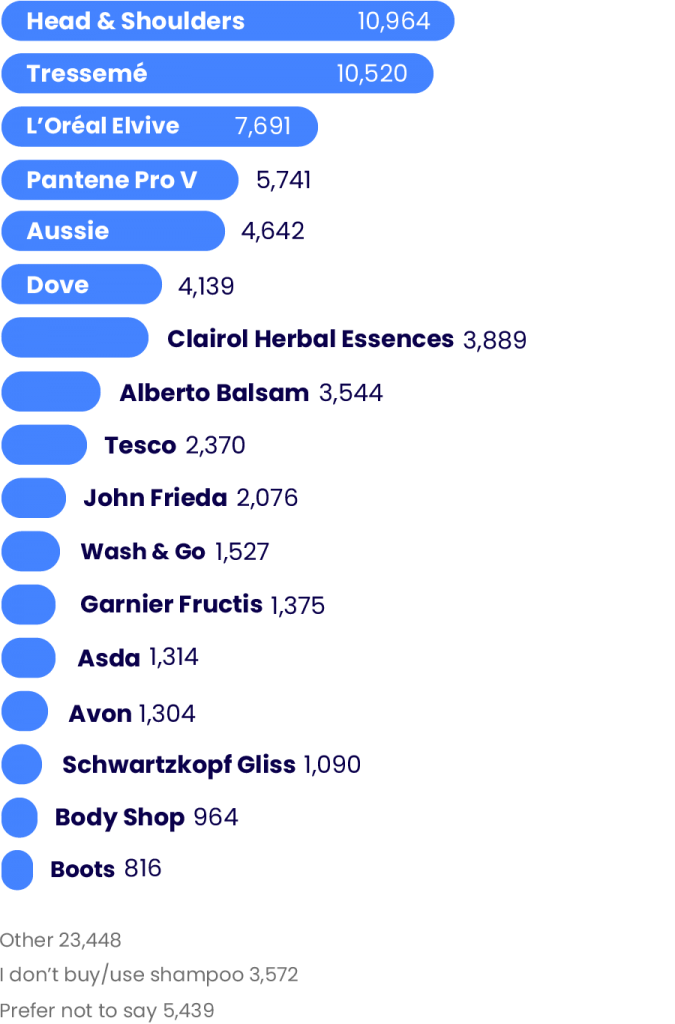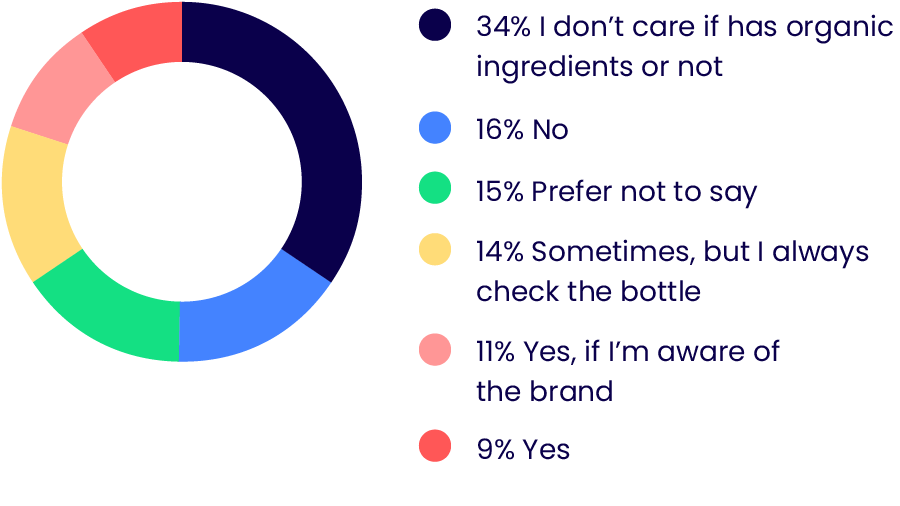Organic haircare: do consumers care?
The shampoo industry, as we know it today, is a multi-million-pound industry – close to £500 million in fact. Our approach to hair care has evolved over the years thanks to a mix of economic and socio-cultural change. We as a society now feel more frivolous, even self-conscious, in how we tend to our hair and the need to be ethical and moral in our product choices has played a big part in our product choices.
With an abundance of shampoo brands on the market catering to frizzy hair, dry hair, itchy scalps, coloured hair and even hair loss, the need to stick out from the rest is paramount. Many brands therefore often angle themselves under the guise of being ‘organic’ or ‘ethically sourced’.
But what exactly is in these tubes, tubs and bottles is often debated, and how they’re viewed by certain demographics, such as gender, is often over-simplified. So can brands simply bluff their way into people’s bathrooms? Do consumers trust them? And where do price and reputation come into play?
To kick things off, we asked 100,000 UK residents what shampoo products they regularly use.
What shampoo products do you use?

Interestingly, Head and Shoulders took the lion’s share of the shampoo and conditioner market. Preferences also differed between men and women, with men preferring less luxurious and ‘organic’ brands compared to women.
Shampoo choice based on gender

The majority of male respondents (20%) use Head and Shoulders regularly, while the majority of female respondents (20%) use more luxurious brands such as Tresseme or L’Oreal regularly. This could imply that certain branding, such as being ‘organic’, is more heavily directed at female consumers.
However, this needed some backup. We wanted to know what people thought of shampoo ingredients and whether or not they could trust what was said on the bottle.
We asked 10,000 UK consumers “Do you trust shampoo and/or conditioner products that say they’re organic?”

When it came to trusting the term ‘organic’, we found that UK consumers overall faith is incredibly low, with just 9% of consumers trusting the product regardless of brand name or awareness. On top of this, women were twice as likely to check the bottle first before trusting the brand (18% of women vs 10% of men), while men were more likely to not care or not trust at all. This could imply that women are either more suspicious of brands and their ingredients or more careful and interested in what they put into their hair.
Such a lack of faith could be down to the relaxed regulations around the term ‘organic’ in the beauty industry. However, did this mean similar terms, such as ‘ethical’, garnered the same response?
Digging a little deeper, we wanted to find out whether the term ‘organic’ meant the same as ‘ethical’ to the everyday consumer.
Organic vs Ethical
We asked two distinct questions about the importance of purchasing ‘organic’ or ‘ethical’ shampoo and conditioner. In doing so, we wanted to find out whether this was a simple case of branding buzzwords, or whether similar words elicited difference emotive responses.
We asked 10,000 UK residents “How important is it for you to have organic ingredients in your shampoo or conditioner?”

We asked 10,000 UK residents “How important is it for your shampoo or conditioner to have ethically sourced environmentally friendly ingredients?””

Interestingly, the results contrasted. This is somewhat surprising, given the moral reputation associated with the term ‘organic’. While the term ‘organic’ doesn’t equate to being ‘ethical’, the two words can often be mixed up in the same pool, alongside terms such as ‘fair trade’. The results showed people had much more compassion when confronted with the term ‘ethical’, which could imply that consumers are more concerned about the environment, animal welfare and the parties involved in sourcing ingredients, rather than how an organic product treats their skin.
Pricing and Lies
From there, we asked the UK public where loyalty lies in the shampoo and conditioner world – if they found out they were being lied to, would they change their purchase choice?
We asked 10,000 UK residents “If you found out your favourite shampoo or conditioner wasn’t honest about its ingredients, would you switch to a competing product?”

Only a tiny fraction of UK consumers would stay loyal to their favourite shampoo or conditioner brand if they found out they were being lied to. This is an important piece of insight as it shows that Brands are taking a huge risk when it comes to fabricating or bending the truth of their product’s ingredients. Just over 7% of UK consumers would stay loyal to their favourite shampoo or conditioner brand, while 16% of UK consumers would ‘Definitely’ change brands, regardless of what they were lied to about.
However, the biggest reason behind switching to a competing brand in this circumstance was not due to lies about being organic or ethically sourced, but whether or not the ingredients were harmful to the user. The results also showed that age was a huge factor when it came to customer loyalty.
When broken down by age, 18-25-year-olds were far more likely to change brands when lied to about ingredients being ethical or organically sourced. Nearly 20% of 18-25 year old’s would change brands in this case, compared to just 10% of over 65’s. In fact, the concern about ethics and organically sourced ingredients steadily decreased with age.
Again, this tells us that morality and branding must correlate, as consumers become more aware and passionate about the ingredients behind their favourite shampoos and conditioners.
As with any businesses, risk must be weighed against cost. Is it worth brands taking the risk in fabricating their ingredients if they know they can mark up the price and make more profit?
We asked 10,000 UK residents “Are you willing to pay more for shampoo or conditioner products with organic ingredients compared to non-organic?”

When it came to paying more for an organic hair care product, 35% of UK residents responded ‘Not at all’. This could be due to either saturation of the term ‘organic’ in the market or an increasing number of consumers showing a more emotive response to the word ‘ethical’. Although more women responded with ‘maybe, I’d be open to it’ compared to men, at 32% and 25% respectively, only 4% of all consumers responded with ‘definitely, it has to be organic’.
When it comes to the shampoo and conditioner market, the everyday consumer shows a low level of trust towards branding buzzwords. The overall consensus? Environmental care, especially for the younger generations, is having an increasingly large amount of influence on purchase decisions, while the term ‘organic’ is showing little effect in both purchase decision and loyalty.
When it comes to gender, there is an obvious difference in how men and women approach the shampoo and conditioner market and with the hair and beauty industry being heavily targeted towards women, this is unsurprising. Based on the results, it could be argued that female consumers are more sceptical of branding, while there is more apathy from male consumers. However, what could benefit all consumers are more stringent regulations around the terms ‘organic’ and ‘ethical’, as well as more transparency and honest on behalf of brands.
Keen to find out your own piece of insight? Simply get in touch and discover how Find Out Now can give your business the instant insight it needs.